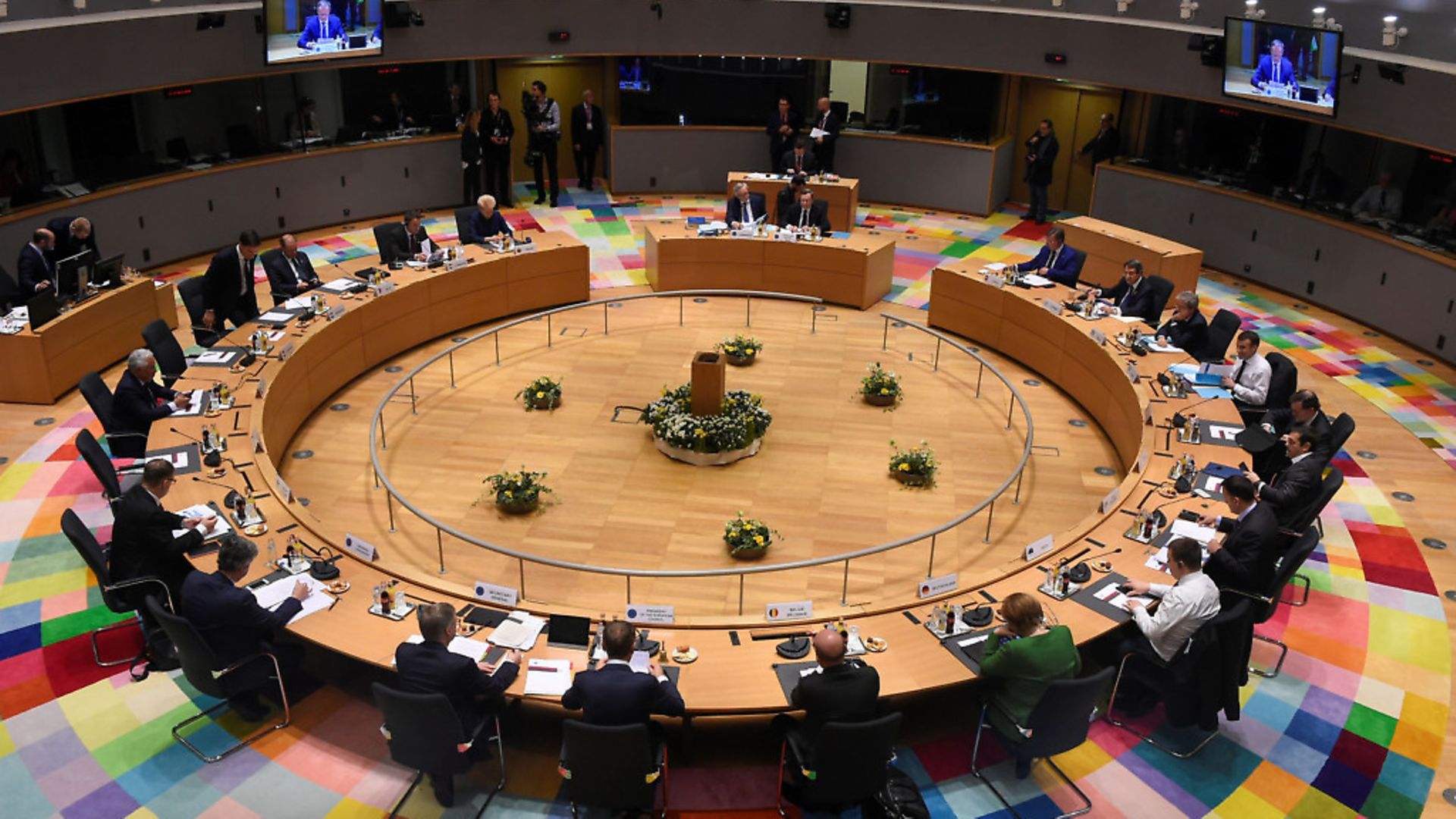
Germany’s new presidency of the EU Council seems like fortuitous timing in terms of Brexit negotiations. It’s not, says KAI OPPERMANN.
This month Germany took over the rotating presidency of the Council of the EU at a time when the coronavirus confronts the bloc – in Angela Merkel’s words – with the greatest challenge in its history. As if that was not enough, Germany’s six months at the helm of the Council also come at a critical time for the EU-UK negotiations.
The German presidency will thus be a crisis presidency, and many observers place high hopes in Germany’s ability to steer the EU towards calmer waters. These hopes extend beyond the pandemic and include expectations that the presidency will help unlock EU-UK talks. Similar to early assumptions on the part of the UK government back in 2016 that Germany will be an important ally in securing a trade agreement with the EU, such expectations rest on Germany’s economic interests and its influence within the EU. Now as then, however, these expectations are overblown and will likely be disappointed.
It is probably true that no other country would be better placed than Germany to assume the Council presidency at this critical juncture. It is the most powerful of the remaining member states, and is looked to for leadership at times of crisis.
Domestically, meanwhile, Germany’s coalition government has found new momentum and popularity in its handling of the pandemic. As the longest-serving current EU head of government, Angela Merkel has earned a strong personal reputation among her European peers as a pragmatic and influential deal-maker.
In this sense the German presidency is indeed a happy coincidence. Still, there are three reasons to doubt that it will make a significant difference in EU-UK post-Brexit negotiations. First, the presidency plays no institutional role in them. The Lisbon Treaty significantly reduced the influence the presidency brings, in particular by creating the separate position of president of the European Council, currently held by Charles Michel, which will be the arena in which the crunch talks about any agreement will ultimately take place.
Moreover, EU member states have delegated the responsibility for day-to-day negotiations to the European Commission and its chief negotiator, Michel Barnier. The German government strongly supports this division of labour, not least to forestall UK attempts to divide the EU27, and thus to insulate itself from bilateral UK approaches.
While Germany, and other member states, have been critical in agreeing the Commission’s negotiating mandate, the German government has always been clear that talks on the EU side are led by Brussels, not Berlin. In other words, there is little the German presidency can do to shape a European consensus around an agreement that Germany could not already have done as a large and influential EU member state before its presidency.
Second, the German presidency faces a particularly overcrowded agenda, and Brexit will not be top priority. Rather, Germany’s programme for the presidency makes clear that the overarching focus will be to keep the EU27 united in the coronacrisis, and to foster solidarity in overcoming the consequences of the pandemic. Most of the bandwidth of the presidency, at least until after the summer, will be required to secure agreement on the EU’s multiannual financial framework, including a controversial 750 billion euro recovery instrument. While German officials expect the EU-UK negotiations to move higher up the presidency’s agenda in the autumn, the window for high-level talks in the European Council to secure an agreement by October – necessary to get the agreement ratified by the end of the year – will be uncomfortably narrow.
Have your say
Send your letters for publication to The New European by emailing letters@theneweuropean.co.uk and pick up an edition each Thursday for more comment and analysis. Find your nearest stockist here or subscribe to a print or digital edition for just £13. You can also join our readers' Facebook group to keep the discussion and debate going with thousands of fellow pro-Europeans.
Third, Germany’s main interest in the EU-UK negotiations is to maintain EU27 unity and to defend the integrity of the single market. While it remains the position of the German government that it prefers an agreement to no agreement, this has always been under the proviso that an agreement must in no way undermine or weaken the EU.
It has been a common misconception of the German approach to expect that Germany’s interests as a major export-oriented economy would make it amenable to special trading arrangements with the UK even if they compromise key principles of the single market. In contrast, there is a broad domestic consensus in Germany across all major parties – and including the car industry – that the overwhelming long-term political and economic interests lie in the single market and the stability of the EU, which are seen to greatly outweigh the benefits from any EU-UK trade agreement. In fact, Germany has used its diplomatic clout throughout the Brexit process precisely to maintain a common EU27 line and to prevent any UK cherry-picking. If anything, the pandemic has heightened Germany’s concerns about EU survival and further hardened its approach to Brexit. As it assumes the presidency, the view of the German government on the negotiations is that the ball is in the UK’s court and that the scope for agreement depends on UK movement.
None of this is meant to suggest that it will be impossible for the EU and the UK to come to an agreement. Some recent reports speculate that they might. If they do, however, it will have had little to do with the German presidency.
• Kai Oppermann is a professor of international politics at Chemnitz University of Technology; this article was first published by UK in a Changing Europe









